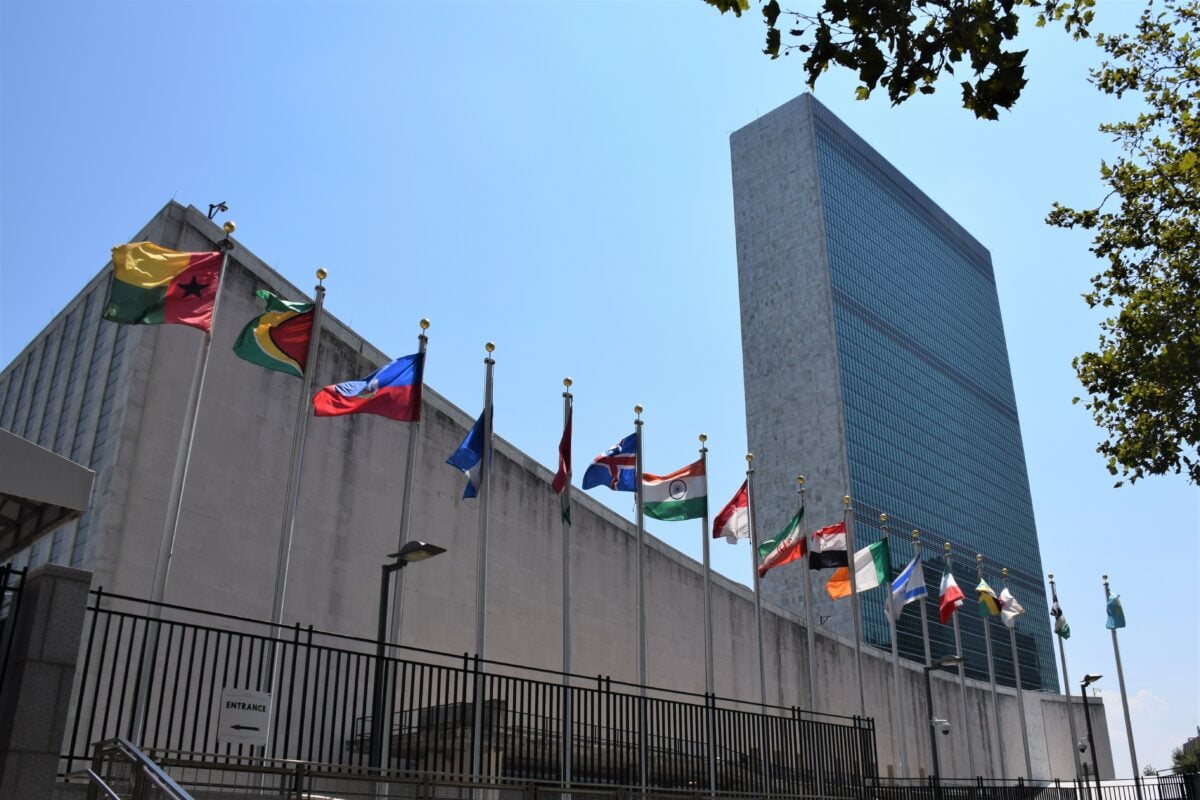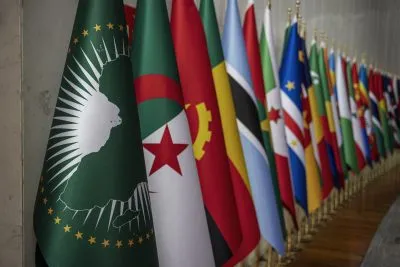They parlayed in Paris, breakfasted in Brussels, and shook hands in London and Rome. And at the end of it all, in June last year, leaders of the world’s richest countries unfurled a deal that they claimed would overhaul the global tax system. It stipulated that multinational giants would pay some of their taxes in the countries where they operated, not only in the place they were registered. It also envisaged a corporate tax floor of 15%, to apply the world over.
“A historic agreement,” gushed Rishi Sunak, then UK finance minister, after G7 countries announced the deal. “A historic day,” boasted his American counterpart Janet Yellen, when 130 jurisdictions signed up a few weeks later. “A great success,” said the outgoing German chancellor Angela Merkel in October 2021, as the G20 gave its seal of approval.
But African countries were not so sure. The deal had been driven by the priorities of Western governments, which were squabbling among themselves about how to tax digital business. “Africa is in danger of being collateral damage,” warned a briefing note circulated among African economic officials. The plan would be complex to administer and seemed to bring few tangible benefits. As of now, only 25 of the continent’s 54 states have signed up.
So African countries decided to make history of their own. In a ground-breaking resolution, which was adopted by the United Nations on 23 November, they collectively called for talks on international tax cooperation to begin at the UN. For too long, tax discussions had happened in spaces created and controlled by rich countries, such as the Paris-based Organisation for Economic Cooperation and Development (OECD). At the UN, where countries stand on a relatively equal footing, Africa hopes to have more of a say.
“There is a clear commitment in the Addis Ababa Action Agenda [on financing for development] that international tax cooperation should be universal in scope and approach,” said the delegate from Nigeria, which led the push. “Most countries also find it difficult to accept the legitimacy of international norms or forums that they had no effective voice in shaping.”
Standing in unison, African countries had opened a new front in the century-old quest for tax justice.
Capital gains
At the heart of all international tax negotiations is a simple question: who gets to collect what? When a multinational company operates across several countries, should it be taxed only in the place where it is resident, or across all the places where it makes sales and employs workers?
On one side are the capital-rich countries of the global North, where many of the world’s biggest companies are based. On the other are capital-poor countries, like most of those in Africa.
Like most things, this tussle has historically been won by the capital-rich. “This international corporate tax system is essentially from the 1920s, built on the colonial trading blocs of the time, so it’s pretty much a colonial tax system,” says Pooja Rangaprasad of the Society for International Development, a civil society network.
Since the 1950s the international tax agenda has been set by the OECD, a club of 38 rich countries that grew out of Europe’s post-war reconstruction effort. It holds few formal powers, but boasts formidable expertise. Its model treaty, which favours capital-rich countries, is the basis for most bilateral tax agreements over the last 60 years.
“The OECD has been working in this area since before many African countries were independent,” says Martin Hearson of the International Centre for Tax and Development, a UK-based research network. “Because the OECD got there first – and then because the OECD states occupy such a powerful position in the global economy – it hasn’t been really possible for anyone else to catch up.”
Yet the financial crisis of 2008-09 opened fissures in the established order. Rich countries realised that they too had been haemorrhaging revenue under the existing rules, which made it easy for money to be siphoned into tax havens.
Suddenly tax justice was the talk of the town. Politicians started picking up ideas that campaigners had been pushing for years, such as the automatic exchange of information between tax authorities. In 2013 the OECD said it wanted to make it harder for multinational companies to shift their profits into low-tax jurisdictions. Three years later it opened up discussions to the so-called “Inclusive Framework”, a forum which now counts 141 countries and jurisdictions among its members.
But the OECD – which did not respond to an interview request for this story – is a strange institution to be leading the charge. According to calculations by the Tax Justice Network, a civil society group, more than 70% of all corporate tax abuse runs through OECD countries themselves.
The UK alone is responsible for a third of the world total, as multinationals route profits through the City of London and its “spider’s web” of overseas territories and dependencies. The poachers and the gamekeepers are one and the same.
A rum deal
For cash-strapped African countries, a reform of the global tax system was long overdue. Colonial rule had created “gatekeeper states”, which were too weak and too unpopular to tax their own people effectively and so relied heavily on the tariffs they could extract at their borders. When trade was liberalised in the 1980s and 1990s, even that source of revenue dwindled.
That makes corporate tax unusually important on the continent. Big companies pay no more tax in Africa than elsewhere: corporate tax revenues are about 3% of GDP on the continent, the same as in the rich countries of the OECD. But African governments are collecting less tax from other sources, such as personal income. As a result, corporate tax accounts for 19% of their total revenues – nearly twice as much as in OECD countries, and more than in any other region in the world. In Nigeria, corporate tax provides nearly half of federal tax revenue.
Corporate tax avoidance therefore leaves a gaping hole in government coffers. In a study last year, the economists Javier Garcia-Bernardo and Petr Jansky estimated that profit-shifting costs African countries about 7% of their total tax revenues. In proportional terms, no other continent is as badly affected.
All this means that African countries have plenty to gain from tax reform. “Initially there was a hope that [the negotiations at the OECD] would deliver a solution,” explains Irene Ovonji-Odida, a Ugandan lawyer who has sat on two high-level UN panels into illicit financial flows and financial integrity.
But the outcome left African countries sorely disappointed, she says: “It really is a tax deal for the rich – for rich countries, but also for the rich in rich countries.”
The first pillar of the reforms considers how to tax the world’s biggest multinationals: a hundred or so companies with global revenues exceeding $20bn a year. Straight away, that limits its relevance in Africa, where few businesses operate on such a scale.
The right to tax those companies is then divided out according to a complex formula. The rules first allow for a 10% profit margin. Taxing rights on a quarter of the remaining profit are allocated between the countries where a company has customers. It is a step away from the old system, but a tentative one.
In exchange for those modest gains, governments must renounce taking any unilateral measure to tax cross-border digital businesses. “The reality is that they are giving up taxing rights when they sign on to any deal of this sort,” says Ovonji-Odida.
That is a particular sticking point for Nigeria and Kenya, which both have digital services taxes of their own. Neither country has signed up to the deal. In a statement last year, the Nigerian finance minister Zainab Ahmed explained that the OECD plan “falls short of Nigeria’s legitimate expectation regarding fair re-allocation of multinational enterprises’ profit”. She warned that Nigeria could give up more revenue than it would gain.
A pillar of ire
There is also disappointment about the second pillar of the reforms, which sets a global minimum corporate tax of 15%. That rate reflects a compromise between the Biden administration, which wanted it to be higher, and low-tax holdouts such as Ireland. African countries complain that the floor has been set far too low, given that they typically have corporate tax rates in the range of 25-30%. They also worry that rich countries, where multinationals are headquartered, would get first dibs on the top-up taxes that would be collected if a company shifts its profits to a tax haven.
In 2020, as the final details were still being worked out, the OECD estimated that its plan would increase corporate tax revenue in low-income countries by 3% to 4%. Most of those gains would come from the minimum tax rule, which would weaken the incentive for companies to shift their profits elsewhere.
The charity Oxfam estimates that the first pillar of the deal would generate revenues of just 0.026% of GDP in developing countries – no more than would be gained from a 3% digital services tax.
“The bottom line is if you look at the two pillars together – or if you look at either in isolation – there is not enough money in it for African countries to make it worth their while participating,” says Hearson, the tax researcher.
“What’s in it for us?”
African countries voiced their concerns during discussions at the OECD, but they were largely ignored. “The current proposal is far too complicated and would lead to challenges in terms of its implementation, particularly in low-capacity countries,” says Thulani Shongwe, manager for international tax at the African Tax Administration Forum (ATAF), a network of tax officials which has been giving technical support to African countries in the negotiations.
Most of the recommendations put forward by ATAF were “not taken up,” he says. That “has left many countries, both African and other developing countries, asking the question: ‘what is in it for us?’”
The process was not entirely one-sided. The work of ATAF has fostered pan-African unity and bolstered tax expertise. The OECD took on board some of its suggestions, promising to bring more multinationals under the rules after seven years. The creation of the OECD’s Inclusive Framework allows for wider participation, at least on paper. African technocrats are “gaining more experience and more stature in the international negotiating space,” says Hearson.
But it remains frustratingly difficult for African countries to be heard. Initial discussions were conducted among rich countries, who continue to drive the agenda. Only half of Africa’s governments are at the table. Negotiations have been proceeding at a frantic pace, with documents sometimes circulated in the evening for comment by morning. Even the cost of staying in Paris is prohibitive for some delegations.
“The process was not inclusive, despite the name,” says Ovonji-Odida, the Ugandan lawyer. “A lot of the decision-making is not clear.”
That explains why African countries have revived a long-standing demand: to shift the tax conversation to the United Nations, one of the few international fora where their voice gets heard. “The OECD was established by rich countries to take care of the interests of rich countries,” says Alvin Mosioma of Tax Justice Network Africa, a network of civil society groups. “If we need to have really transformative reforms of the international tax system, they should happen in spaces where each country has a seat at the table.”
In May, African finance ministers called on the UN to start negotiations on a tax convention, similar to the convention that already underpins global talks on climate change. In September, the UN Secretary General António Guterres announced his willingness to support it. The global tax justice movement has loudly backed the idea, with civil society groups drafting proposals for what such a convention might look like.
The idea horrified the OECD, which saw control of tax issues slipping from its grasp. Behind the scenes it began aggressively lobbying states to oppose the resolution, which it framed as a distraction from the serious business of its own tax reforms.
The pushback had an effect. In October, the Africa Group at the UN had proposed “an effective and inclusive international convention on international tax co-operation”. By the time of the vote six weeks later, the word “convention” was scrubbed out. The watered-down resolution called only for the start of discussions on tax cooperation, “including the possibility of developing an international tax cooperation framework or instrument”.
“We are… troubled that this resolution could not be more ambitious,” said the Nigerian delegate, before condemning “the enormous pressure put on sovereign countries by the secretariat of another, less inclusive, international organisation”. There were no prizes for guessing who she meant.
On the day of the vote the US brought a last-minute amendment which tried to dilute the resolution even further. Its delegate warned that the Africa Group’s proposal “would tear down much of the progress that has been made in international tax cooperation since the 2008-09 financial crisis”. Other rich countries complained that the idea would create a “parallel track” for discussion and “duplicate” the work of the OECD. The existing system was inclusive enough, they said.
But the global South stood firm, and the rich countries grudgingly acquiesced. The resolution passed without a vote.
No silver bullet
The UN resolution is a “historic first step,” said the Nigerian delegate, echoing the language that G20 leaders had used about the OECD deal. But a long road lies ahead. Discussions could falter. Resources may never materialise. Most importantly, the same power dynamics that riddle negotiations at the OECD could reproduce themselves at the UN.
“I don’t think that by improving the institutional structure you’re automatically going to get better outcomes for African countries, unless they are also strengthening their own capacity to negotiate,” says Hearson.
Even so, the Africa Group has shown a powerful sense of solidarity on tax issues. “There’s constant effort for divide and rule, particularly by the rich countries,” says Mosioma, the tax campaigner. “But we have seen a more unified force.”
At the same time, the OECD’s own unity is faltering. The first pillar of its plan would necessitate an international treaty, which would in turn require a two-thirds majority in the US senate before the Biden administration could implement it. The chances of such a treaty being finalised by mid-2023, as the OECD envisaged, are dwindling. Without the US on board, some European countries might revive their own plans for digital service taxes, which are the very measures that the deal is designed to avoid.
“It’s reasonable to say that [the UN resolution] would be the beginning of the end for the OECD’s dominance in this area,” argues Alex Cobham, a campaigner at the Tax Justice Network. “They want to fight to slow down the emergence of a globally inclusive alternative. But this will feel very much like the tipping point.”
Want to continue reading? Subscribe today.
You've read all your free articles for this month! Subscribe now to enjoy full access to our content.
Digital Monthly
£8.00 / month
Receive full unlimited access to our articles, opinions, podcasts and more.
Digital Yearly
£70.00 / year
Our best value offer - save £26 and gain access to all of our digital content for an entire year!
 Sign in with Google
Sign in with Google 



